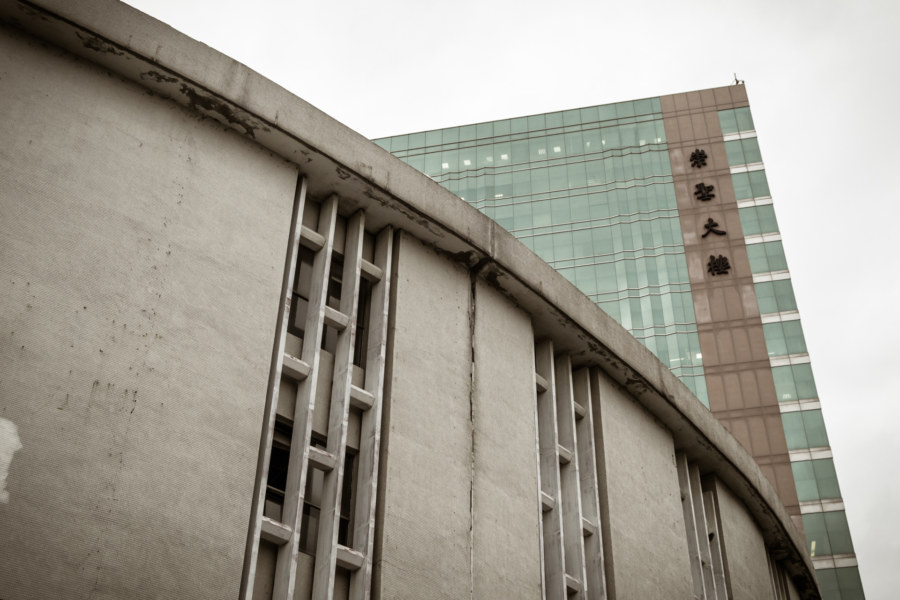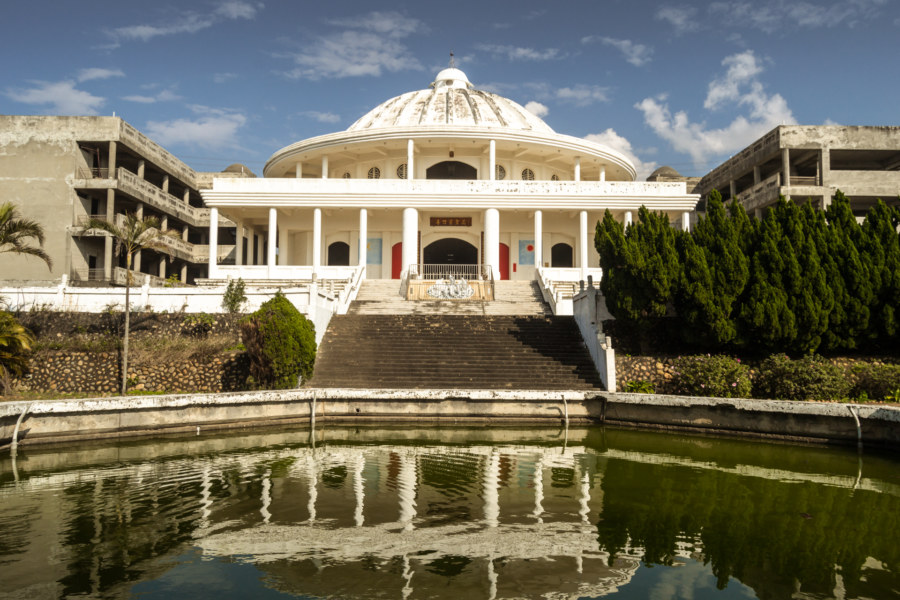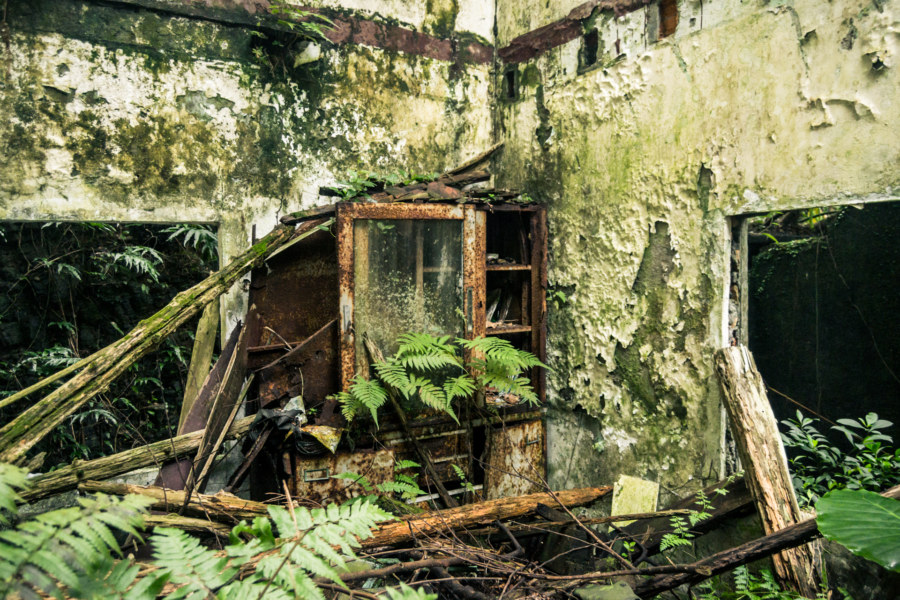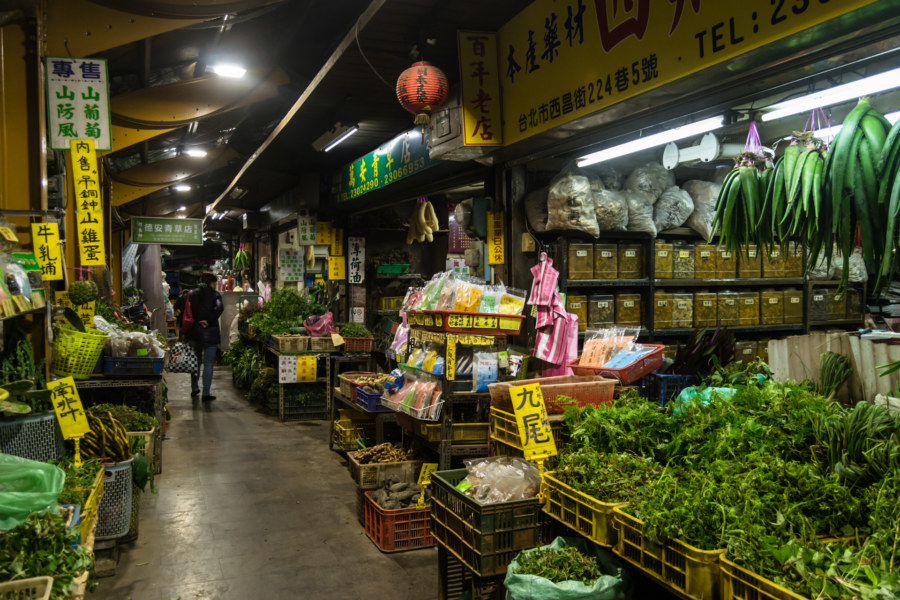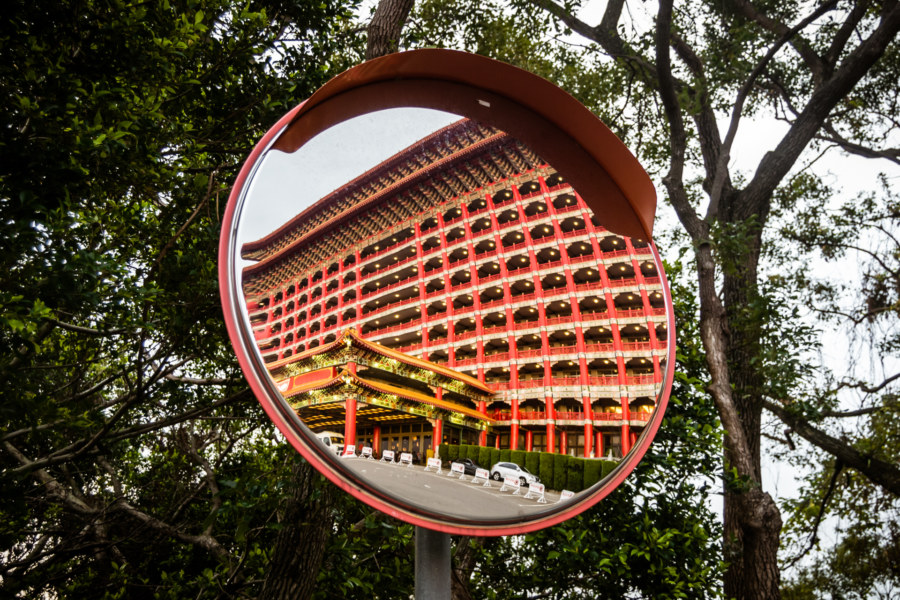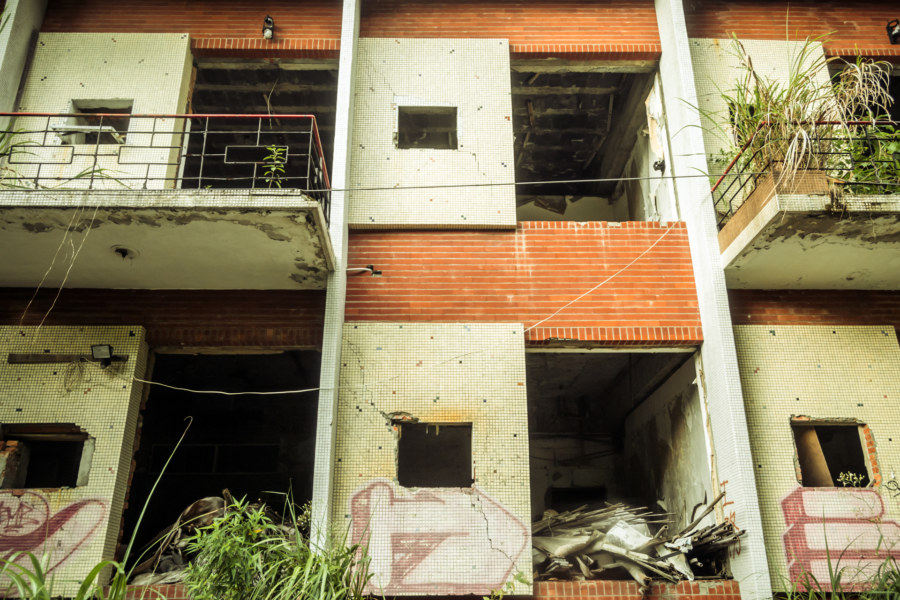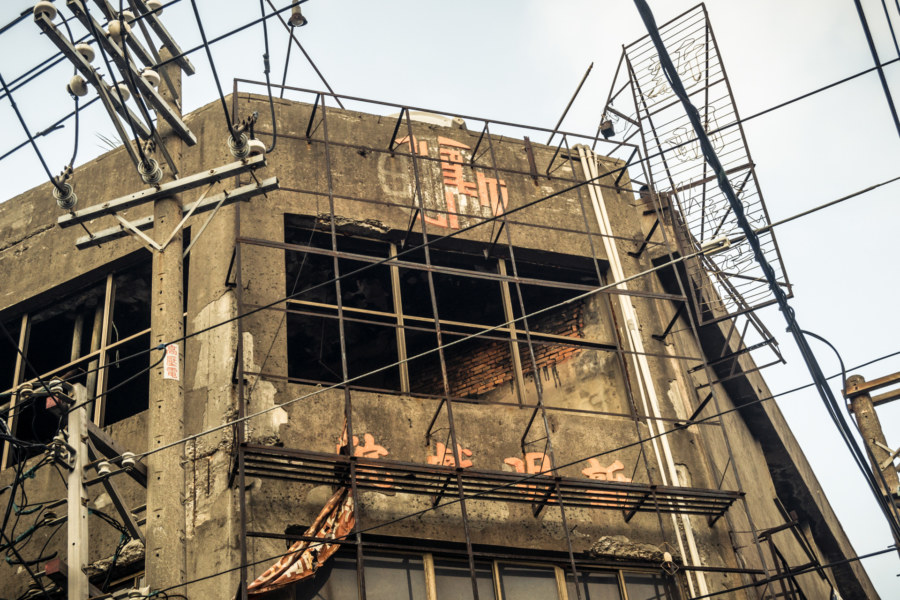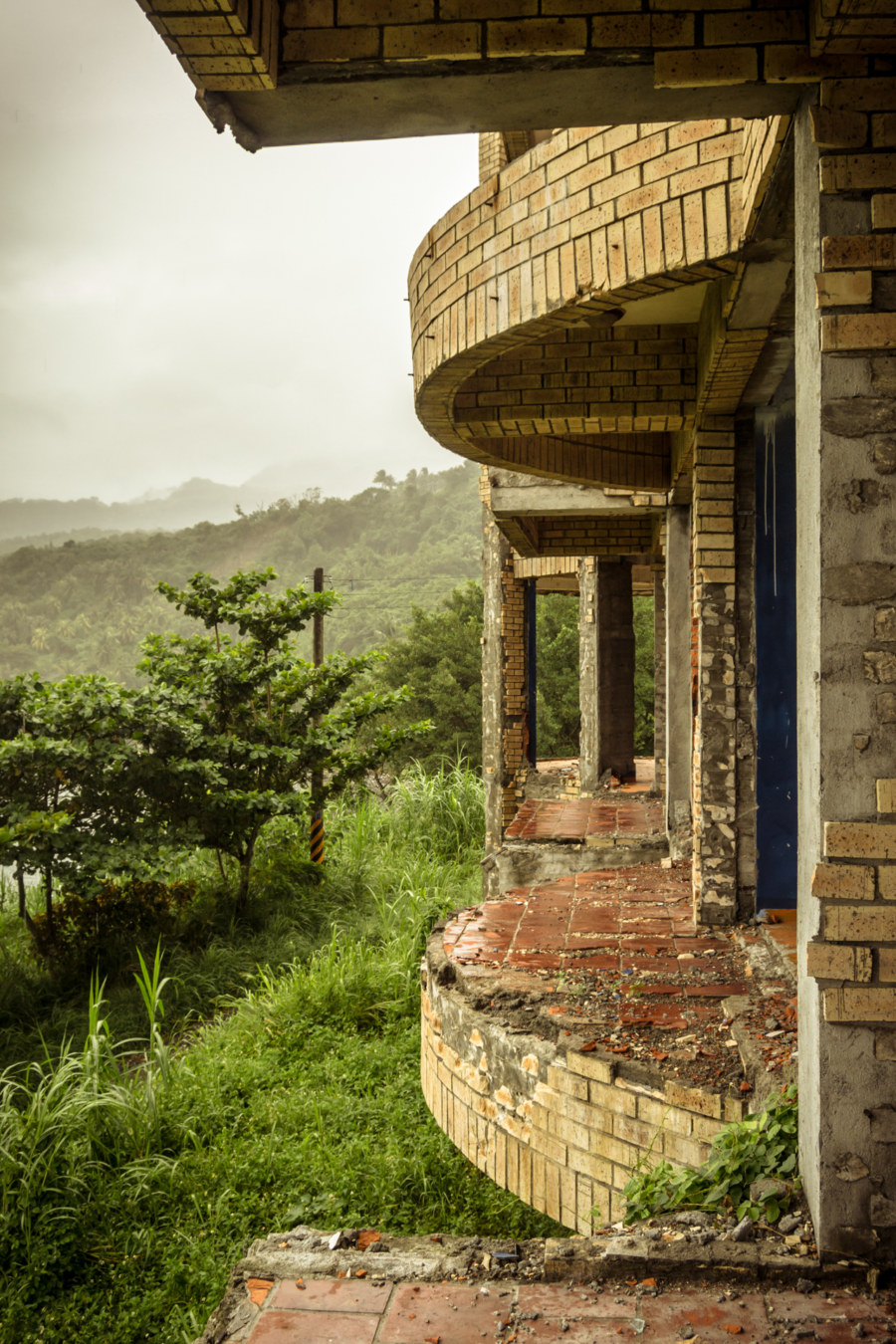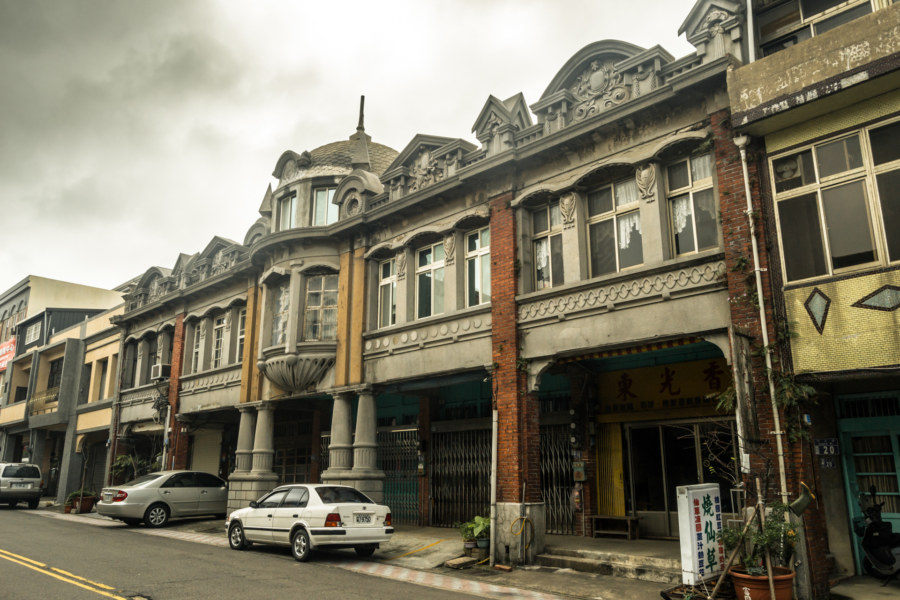One of the more peculiar ruins I’ve seen in Taiwan was a building immediately across from the Control Yuan (監察院), one of the five branches of government, on Zhōngxiào West Road (忠孝西路). It was inaugurated as the second home of the Taipei City Council (台北市議會) in 1964 after moving from nearby Zhongshan Hall (中山堂). In 1990 the city council relocated to its present base in Xinyi and the building was converted into a police station before being completely abandoned in 2007. Despite this the building continued to be known as the Second Taipei City Council Building (第二台北市議會大廈).
This category mainly features location-specific content about individual points of interest. These might be historic sites, tourist attractions, abandoned places, or something else constrained by geography.
Wansheng Zizhu Monastery 萬聖紫竹寺
Wànshèng Zǐzhú Monastery (萬聖紫竹寺) is an unusually austere temple located on the seaward slope of the Dadu Plateau (大肚台地) in Shalu, Taichung. At first I assumed it was abandoned, for there was absolutely nobody around when I visited. The main hall is in an obvious state of disrepair and the two flanking buildings remain unfinished. After wandering into both altars I left with more questions than answers. Apart from the Putuoshan White Temple it isn’t at all like most other temples I’ve seen in Taiwan.
Ruchuan Village 入船里
Rùchuán Village 入船里 is a small community in Keelung, a historic port town of approximately 373,000 scattered among the rugged hills of northeastern Taiwan. Keelung’s growth over the last century has been constrained by a lack of flat land on which to build—with much of that concentrated at the foot of the harbour that now constitutes the downtown core. With few other options for expansion the city has sprawled upward along the hillsides and deep into the many valleys leading up from the port.
Herb Alley 青草巷
Herb Alley (青草巷, pinyin: Qīngcǎo Xiàng) is a minor attraction immediately adjacent to the famous Lóngshān Temple (龍山寺) in Monga, the most historic part of Wanhua, Taipei. Hundreds of years ago, long before western medicine came to Taiwan, it was common for people to visit the temple, pray to the relevant gods, and receive herbal prescriptions for whatever ailed them. Vendors setup shop outside the temple gates to help fill these prescriptions. Decades ago the prescriptions themselves were outlawed (and rightfully so) but the tradition of selling herbs next to the temple continues, albeit in a more orderly fashion out of actual shops along Xīchāng Street Lane 224 西昌街224巷.
Taipei Grand Hotel 圓山大飯店
Yesterday’s impromptu ride around the riverside bikeway network delivered me to the palatial Grand Hotel (Yuánshān Dàfàndiàn 圓山大飯店), a famous landmark in Zhongshan, Taipei. Located on a hilltop overlooking a bend of the Keelung River (基隆河), it was established in 1952 at the behest of generalissimo Chiang Kai-shek to provide the ruling elite with a luxurious place to host and entertain foreign dignitaries. The distinctive building seen in these photos was completed in 1973 and was the tallest building in the Free Area of the Republic of China until 1981.
Beitou Asia Pacific Resort 北投亞太溫泉生活館
On the last day of my round-the-island bicycle tour of Taiwan I undertook a brief excursion to the hot springs area of Beitou. I had expected the previous night to be my last on the road but a series of flat tires kept me from finishing my journey. With time to spare the following day I took a meandering route back to Taipei and, as luck would have it, also chanced upon one more ruin to explore. Not too far up the road from the majestic Thermal Valley (地熱谷) I noticed the crumbling outlines of a building that I correctly assumed was a derelict hot springs hotel: Asia Pacific Resort (北投亞太溫泉生活館).
Zhongli Xinming Theater 中壢新明戲院
In the last year or so I have found and explored numerous abandoned movie theaters in Taiwan. It all started when I stumbled upon Datong Theater (大同戲院) in Taitung City last June. Since then I have learned much more about the Taiwanese cinema industry: how many theaters are likely to be found in a city of a given size, where they are likely to be found, when they were likely to have been abandoned, and so on. Not long after moving to Zhongli a few months ago I put this growing awareness to the test by cycling around town one morning, finding several theaters new to me, all within close proximity to one another. One of these, Xīnmíng Theater (新明戲院), is the subject of this post. Public records indicate the business was registered around 1980 and lapsed in 1997, though it almost certainly closed sometime before then.
Jiamuzi Bay Minsu 加母子灣民宿
Jiāmǔzǐ Bay 加母子灣 is a beautifully remote and scenic stretch of coastline just north of Taitung City in Donghe, Taitung. It is also home to the gutted ruins of an abandoned mínsù 民宿 (a funky bed and breakfast or homestay-style inn) readily visible from just about anywhere along the bay. While cruising along the coastal highway on my first Taiwan bicycle tour in late 2013 I stopped two stops to take a closer look: once beneath the moody remnants of Typhoon Usagi and again on a sunny afternoon the following day.
Fugang Old Street 富岡老街
Fùgāng Old Street 富岡老街 is an obscure anachronism in the western part of Taoyuan, Taiwan. It extends from a railway station that opened during the Japanese colonial era in 1929 through the heart of this small Hakka town. The coming of the railroad brought prosperity to the area and several ornate shophouses were built around the station in a mishmash of architectural styles common at the time. Nowadays it is just another street in rural Taiwan, albeit one with a little more history than most, possibly because it is too unimportant a place for modernization to have swept away these vestiges of the past.
Zhongyuan Theater 中源大戲院
Zhōngyuán Theater 中源大戲院 is a second-run theater located in the heart of Zhongyuan Night Market 中原夜市 in Zhongli, Taiwan. Zhongyuan Theater is ideally located next to the university of the same name amidst a huge population of budget-conscious students—which may explain why it remains in business unlike hundreds of other old theaters that have fallen into ruin in recent years, victims of changing consumer habits and strong competition from more modern multiplexes. Zhongyuan is also one of the very last theaters in the nation where you will find hand-painted movie posters hanging outside, a nostalgic practice more widely associated with Chin Men Theater 全美戲院 down in Tainan.
